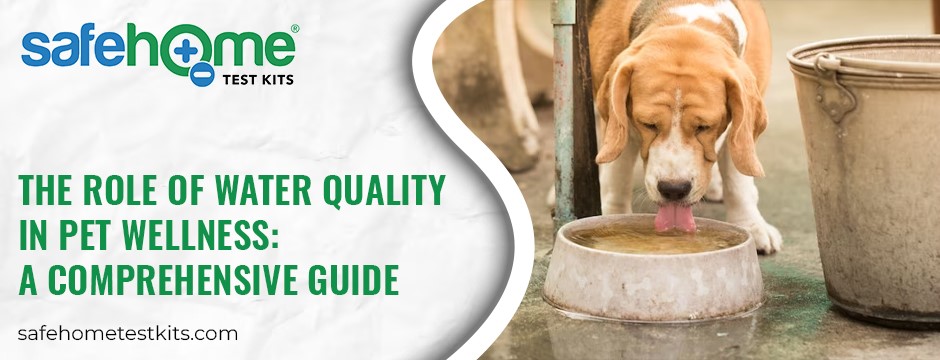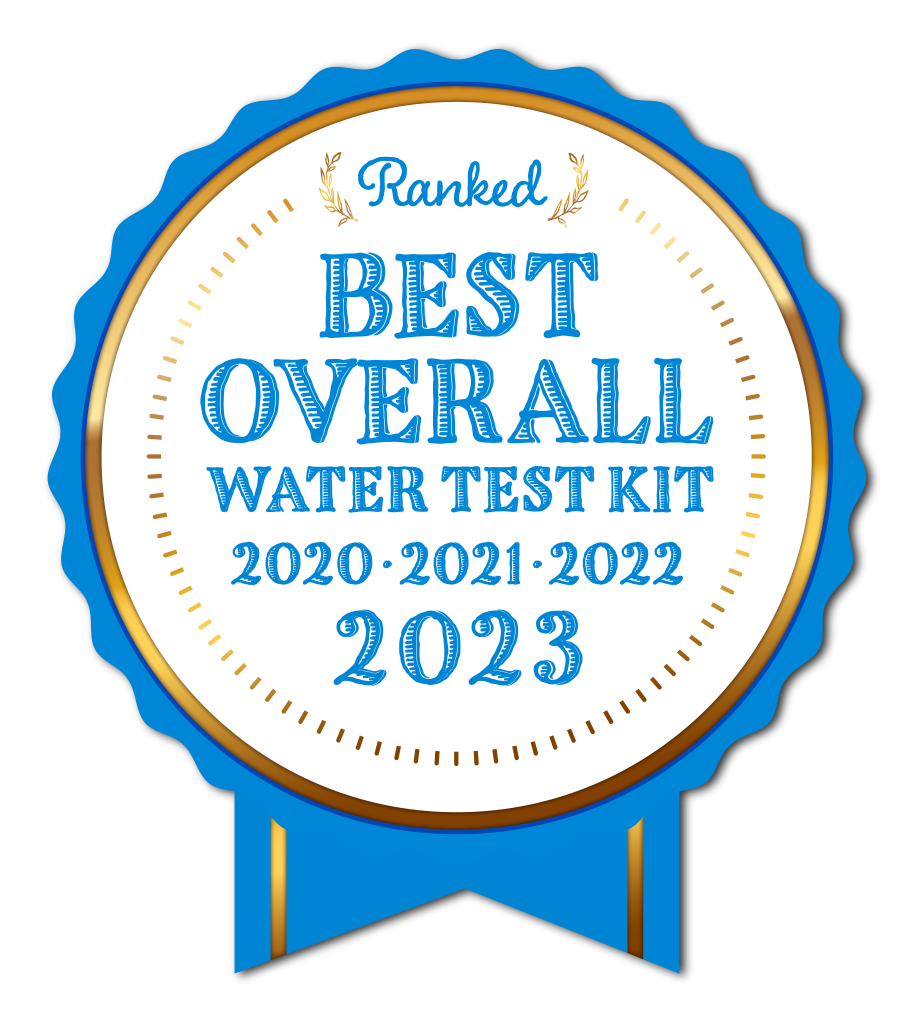The Role of Water Quality in Pet Wellness: A Comprehensive Guide

As pet owners, we are always seeking ways to ensure the health and well-being of our furry companions. We focus on their diet, exercise, and regular veterinary check-ups, but one aspect that often gets overlooked is the water quality they consume. In this comprehensive guide, we will delve into the crucial role of water quality in pet wellness and how it can impact the health of your beloved pets. Understanding the significance of clean and safe water for your pets can significantly affect their health and happiness.
The Importance of Testing
Hydration and Its Significance in Pet Wellness
Before diving into water quality, let’s emphasize the critical role of hydration in maintaining your pet’s health. Proper hydration is essential for various bodily functions in pets like humans. Water helps regulate body temperature, aids digestion, supports kidney function, and ensures proper circulation of nutrients. Without adequate hydration, your pet can experience various health issues, from urinary tract problems to lethargy.
How Much Water Do Pets Need?
The water needs of pets vary depending on their species, size, activity level, and environmental conditions. Cats and dogs, for example, have different hydration requirements. A general guideline is that pets should consume around 1 ounce of water per pound of body weight each day. However, individual variations can occur, so monitoring your pet’s water intake and adjusting accordingly is crucial.
The Impact of Water Quality on Pet Health
Water Contaminants and Their Dangers
Now that we understand the importance of hydration let’s explore the significance of water quality in pet wellness. Poor water quality can introduce a variety of contaminants that can be harmful to your pets. These contaminants may include:
- Chlorine and Chloramines: These chemicals are often used to disinfect tap water but can adversely affect pets, particularly when consumed regularly.
- Heavy Metals: Lead, copper, and other heavy metals can leach into drinking water, posing a severe health risk to pets over time.
- Microorganisms: Bacteria, viruses, and parasites can thrive in untreated or poorly treated water, leading to gastrointestinal issues.
- Chemical Runoff: Pesticides, herbicides, and industrial pollutants can find their way into water sources, potentially harming pets that drink from contaminated sources.
Common Water-Related Pet Health Issues
Poor water quality can contribute to several health problems in pets, including:
- Digestive Problems: Contaminated water can lead to diarrhea, vomiting, and stomach upset in pets.
- Urinary Tract Issues: High mineral content or impurities in water can increase the risk of urinary tract infections and crystal formation.
- Skin and Coat Conditions: Unfiltered water with chlorine and other chemicals can lead to dry skin and a dull coat.
- Weakened Immune System: Consistent exposure to waterborne contaminants can compromise your pet’s immune system, making them more susceptible to illnesses.
Ensuring Safe and Clean Drinking Water
How to Test Water Quality
To safeguard your pet’s health, it’s essential to ensure they have access to clean, safe drinking water. Here are some steps you can take:
- Water Quality Testing: Consider testing your tap water for contaminants. Many companies offer water testing kits or services that can identify potential issues.
- Water Filtration: Install a water filtration system in your home to remove chlorine, chloramines, heavy metals, and other impurities. These systems are often available as under-sink filters or pitcher filters.
Choosing the Right Water Source for Your Pet
In addition to treating your tap water, you may also consider alternative water sources for your pet:
- Bottled Water: Some pet owners prefer to provide bottled spring water, often free from many contaminants in tap water.
- Well Water: If you can access a well, it must be tested regularly for potential contaminants.
Maintaining Clean Water Bowls
Beyond the water source, ensuring your pet’s water bowl is clean is crucial. Here are some tips:
- Regular Cleaning: Wash your pet’s water bowl daily to prevent bacteria and algae growth.
- Choose the Right Material: Opt for stainless steel or ceramic bowls, as they are less likely to harbor bacteria than plastic ones.

Ensuring Safe Water for Your Pet with DIY Testing
My Pet Domestic Animals Water Quality Test Kit – BASIC
For pet owners who want to take a proactive approach to ensure their pet’s water is safe, the My Pet Domestic Animals Water Quality Test Kit – BASIC is an excellent solution. Priced at just $12.99, this DIY testing kit allows you to perform water quality tests in the comfort of your own home. Here’s what you need to know about this valuable tool for pet wellness:
DIY Testing for Routine Maintenance
The My Pet Domestic Animals Water Quality Test Kit – BASIC is designed for routine maintenance of your pet’s drinking water. It empowers you to screen for unsafe contamination levels without the hassle of sending samples to a lab or waiting for results. With this kit, you can have peace of mind about your pet’s water quality by obtaining instant test results.
Comprehensive Testing for 12 Parameters
This BASIC DIY water testing kit covers a wide range of parameters, providing approximate values for 12 crucial aspects of water quality. These parameters include contaminants like chlorine, heavy metals, bacteria, and more. By testing for multiple parameters, you can understand your pet’s water quality comprehensively and take necessary action if any issues are detected.
The Importance of Safe Drinking Water for Pets
Just as humans need clean drinking water, pets, and livestock rely on safe and uncontaminated water to support vital bodily functions. High contaminants in their drinking water can harm their organs, lead to illnesses, and compromise their health. As responsible pet owners, we must ensure that our beloved animals have continuous access to clean and safe drinking water for a healthier and happier life.
Suitable for Various Water Sources
The My Pet Domestic Animals Water Quality Test Kit – BASIC from Safe Home® is versatile and suitable for various freshwater sources. Whether your pets drink from well water, rainwater, pond water, municipal water, filtered water, bottled water, spring water, lake water, or river water, this testing kit can help you assess the water quality they consume.
Don’t Guess, TEST!
When it comes to the well-being of your pets, there are better options than guessing about the quality of their drinking water. The My Pet Domestic Animals Water Quality Test Kit – BASIC offers an affordable and convenient way to ensure your pets’ water is safe and free from harmful contaminants. By taking advantage of DIY water testing, you can make informed decisions to provide your pets with the cleanest and safest drinking water, contributing to their overall health and happiness.
Investing in a water quality test kit is a proactive step toward safeguarding your pets from potential health risks associated with poor water quality. Remember, a healthier pet is a happier pet, and ensuring the safety of their drinking water is a crucial part of responsible pet ownership.

Prioritizing Your Pet's Wellness
The role of water quality in pet wellness cannot be overstated. Clean and safe drinking water is fundamental to your pet’s overall health and can significantly impact their quality of life. By understanding the potential dangers of poor water quality and ensuring your pet’s access to clean water, you can contribute to their long and healthy life.
As responsible pet owners, let’s pay attention to the importance of water quality in the broader context of pet wellness. By making informed choices about the water your pets consume, you can give them the best chance for a happy and healthy life. Remember, just as we strive for clean and safe drinking water for ourselves, our furry friends deserve nothing less.


